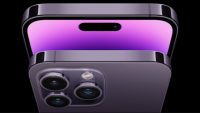U.S. Attorney General Merrick Garland, joined by 16 other state and district attorneys, has filed a civil antitrust lawsuit against Apple for “monopolization or attempted monopolization” of the smartphone market. The move comes after years of regulatory scrutiny triggered by complaints from companies who compete against Apple or rely on it to do business and pay hefty fees for doing so. The charges center on the iPhone, which has an estimated 60 percent share of the U.S. smartphone market and is seen as an essential platform for anyone that wants to reach mobile consumers.
Apple “has turned the billions of smartphones it has sold since 2007 into the centerpiece of its empire,” writes The New York Times, fueling the 48-year-old outfit’s growth “into a nearly $2.75 trillion public company” that had a long run as the world’s most valuable by market cap.

“By tightly controlling the user experience on iPhones and other devices, Apple has created what critics call an uneven playing field, where it grants its own products and services access to core features that it denies rivals,” NYT reports.
Filed in U.S. District Court in Newark, NJ, the 88-page complaint accuses Apple of creating “the moat around its smartphone monopoly,” prompting the government to make a goal of “freeing smartphone markets from Apple’s anticompetitive and exclusionary conduct and restoring competition to lower smartphone prices for consumers, reducing fees for developers, and preserving innovation for the future.”
The suit lists “five examples where Apple used mechanisms to suppress technologies that would have increased competition among smartphones: so-called super apps, cloud stream game apps, messaging apps, smartwatches and digital wallets,” writes Reuters, citing as examples Apple making it harder for “competing messaging apps and smartwatches to work smoothly on its phones” as well as Apple’s policies regarding the App Store, which the plaintiffs say have hurt gaming competition.
“The government has not ruled out breaking up one of the largest companies in the world, with a Justice Department official saying on a briefing call that structural relief was on the table if the U.S. were to win,” CNBC reports, noting “a breakup of Apple if successful would be one of only a handful of breakups under the Sherman Act,” the last being “the breakup of the Bell System in 1982.”
In a follow-up story that suggests the suit presents “years of distractions,” CNBC on Thursday printed a response from Apple, indicating “the lawsuit ‘threatens who we are’ and that it could hurt its ability to make competitive tech products.”
A DOJ press release had harsh words for Apple and what the agency referred to as the tech giant’s “‘Whac-A-Mole’ contractual rules.”
“The number of legal actions against Apple has been growing steadily over the years,” according to The Wall Street Journal. “Most of the cases center on Apple’s market power over outside software developers.”

No Comments Yet
You can be the first to comment!
Leave a comment
You must be logged in to post a comment.